$7,000,000 Birth Injury Case
Mission Viejo Personal Injury Lawyer
Perhaps the most devastating aspect of a serious personal injury event is the fact that in the blink of an eye, a seemingly typical day can be transformed into a lifetime of challenges. The harm suffered in accidents or events caused by another party’s negligence can take the form of debilitating physical, emotional, and financial trauma. As such it is vital that victims know that they are not without options. The legal system affords injured individuals the right to seek justice, monetary compensation, and accountability from those responsible for their pain.
When it comes time to pursue the sort of financial recovery that is often essential to healing and resuming a normal life, a Mission Viejo personal injury lawyer can be a powerful ally in the fight.
What Are the Most Common Injury Scenarios?
The realm of personal injury law is indeed expansive, with this practice area encompassing a broad array of scenarios in which negligence or other accidental harm results in life-altering consequences for victims. Injury events can take innumerable forms, but among the most common are situations involving:
- Car accidents
- Bus accidents
- Truck accident
- Motorcycle accidents
- Bicycle accidents
- Medical malpractice
- Slip and fall/premises liability events
- Wrongful death
- Traumatic brain
- Burn injury
- Paralysis injury
- Spinal cord injuries
- Pedestrian accidents
- Dog bites
- Catastrophic injury
- Workers Compensation
The harm stemming from these sorts of events can run the gamut from being relatively minor to profoundly catastrophic. In addition to the inevitable physical and emotional toll, serious injuries can take on victims, the subsequent financial impact can place families on the brink of collapse.
Mounting medical bills, lost wages, and ongoing therapy costs can rapidly become crippling, and that is when a personal injury lawyer in Mission Viejo can prove invaluable in a victim’s quest for justice.
Establishing That Negligence Caused the Injury
A successful personal injury action in Mission Viejo requires the person seeking damages (plaintiff) to prove that their injuries resulted from the negligence of another party (defendant). Proving negligence is a three-step process.
First, the plaintiff’s attorney must demonstrate that the defendant breached a duty of care to the plaintiff. In legal terms, everyone has an obligation, or duty, to behave in a way that is reasonable and does not harm others. Depending on the circumstances, breaching a duty could mean driving recklessly, failing to properly secure construction equipment, committing medical malpractice, or any other act or omission that could conceivably harm someone else.
Once the plaintiff’s attorney proves that the defendant failed to uphold a duty, they must show that the breach caused the plaintiff’s harm. Establishing a direct connection between the defendant’s action and the harm that the plaintiff suffered is often the most challenging part of a personal injury lawsuit. Once the connection is established, the plaintiff must offer evidence demonstrating the extent of their losses to prove damages.
Stages of Personal Injury Advocacy
Every personal injury matter is distinct, and a personal injury attorney in Mission Viejo will understand the need for a customized approach to each client’s case. There are, however, some essential steps to be taken in order to achieve the most favorable outcome possible.
Is it Possible to Avoid a Lawsuit?
The process will likely begin with a comprehensive review of the facts underlying the injury. This will involve analysis of all available medical records, police reports, and witness statements. At this stage, it may even be possible to engage in settlement negotiations with insurance carriers so that formal litigation becomes unnecessary. However, should such talks prove fruitless, a lawsuit can be filed.
It is often the case that commencement of litigation accelerates the progress of settlement discussions, but if that does not occur, a Mission Viejo personal injury lawyer will be ready and willing to take a client’s matter all the way through the discovery and trial processes.
With an eye always toward obtaining maximum financial compensation for those injured by another party’s negligence, an attorney experienced in this area of the law will work tirelessly to marshal key evidence and build the most persuasive arguments possible. Medical experts, accident reconstruction technicians, case investigators, and legal support staff will work collectively to vindicate the victim’s right to monetary recovery for the losses they have sustained.
Damages
Anyone who has ever suffered as a result of an accidental injury grasps the tremendous upheaval and disruption such events cause entire families. While tragedies of this nature are something none of us wish to experience, victims can take a least some degree of solace in their ability to pursue fair compensation through the legal system.
The specifics of each personal injury case will play a substantial role in the scope of financial recovery potentially available, though it may be possible for victims to receive payment for things such as:
- Past, present, and future medical bills
- Actual value of lost wages
- Diminished future earning capacity
- Loss of marital and/or familial relationships
- Dependents’ loss of financial support
- Physical pain, suffering, and disfigurement
- Ongoing rehabilitation and therapy costs
- Home accessibility modifications
- Funeral expenses, in cases of fatality
Punitive Damages Could be Available
In almost all civil court cases, the damages that a plaintiff receives are limited to the amount they can prove they deserve as compensation for their injuries. However, a plaintiff could ask for punitive damages to punish a defendant for exceptionally egregious conduct in some cases.
The law allows punitive damages only when a defendant intentionally harmed a plaintiff or behaved in a way that indicated conscious indifference to the harm their conduct might cause. The a personal injury attorney must present convincing evidence that the defendant’s actions were intentional or malicious.
Although personal injury cases arising from common negligence usually will not result in an award of punitive damages, they are sometimes appropriate. For example, a court might award punitive damages when a drunk driver causes a severe injury because the driver intentionally consumed intoxicants and then recklessly got behind the wheel. Similarly, courts might award punitive damages if a business cuts corners on safety to preserve profits, resulting in a severe injury.
Comparative Negligence Might Affect Damages
California Civil Code § 1714 says that every individual is responsible for the results of their actions. In a personal injury case, this law could mean that a plaintiff who was partially at fault for the accident might not receive compensation for all of their damages.
If a lawsuit goes to trial, a jury must decide how much blame to place on each party to the action. The jury allocates fault in percentage terms. If the jury assigns some responsibility to the plaintiff, the Judge deducts that percentage from the plaintiff’s damages award.
Most states impose a modified version of comparative negligence that prevents a plaintiff from collecting any damages if they hold a significant portion of the responsibility for an accident—usually either 50 percent or 51 percent. In contrast, a plaintiff in Mission Viejo could collect damages even if a jury finds them 99 percent responsible for their injuries.
Consulting With a Mission Viejo Personal Injury Attorney
Because personal injury cases are always extremely fact-intensive endeavors, it is critical for victims to contact a Mission Viejo injury attorney as soon as possible following the event or accident at issue. Prompt involvement of a legal professional can help ensure that evidence is preserved, witness recollections are fresh and applicable California time limitations on filing a complaint can be met.
Losing the opportunity to secure a potentially sizable financial recovery because of a missed deadline is something no injury victim should have to face. Getting in touch with a personal injury lawyer in the immediate aftermath of an injury is one of the first steps to take.










